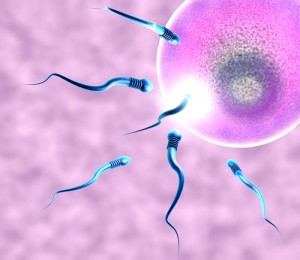
I woke up this morning, had a cup of English Breakfast tea, and thought to myself, “This seems like a good point in my career to alienate all of my readers.” So I sat down and wrote a blog post about abortion.
If you are even a mildly thoughtful person, it’s a good chance you’re sick of the debate over abortion. People screaming past each other, lawmakers scoring useless points, both sides totally entrenched. But here’s the thing – the debate isn’t religious or political, it’s scientific. And totally awesome. To demonstrate this, let me fall back on a hackneyed narrative device called the hypothetical conversation. It’s between Robyn the Righty and Lizzy the Lefty.
———
Robyn: Let me start by say I hate you, your friends, and all you stand for with my entire body and soul.
Lizzy: Yeah, go fuck yourself.
R: Okay, with that out of the way, I don’t see how you can reasonably support abortion. Life starts at conception.
L: I thought we agreed no slogans.
R: Oh right. But here’s the thing. We agree murder is wrong, right? And murder is killing a human. And genetically speaking, as soon as you have an entire set of 46 human chromosomes you are officially part of the species. So abortion is murder.
L: That’s pretty egghead for someone more familiar with Southern Baptists than Southern blot.
L: Okay, I concede that we are definitely biologically human just after conception. But what’s so special about human DNA? It’s 99 percent the same as chimpanzees.
R: You’re into killing chimps now, too?
L: No. Wait, what? No, the point is that DNA isn’t what separates us from the animals. It’s cognition, self-awareness, language. And while many creatures have versions of these things, none of them do it as well as us. But here’s the thing, none of these functions come into being until after the child is born.
R: I knew it! You’re a baby killer! Gotcha.
L: No, you moron. With the exception of Hitler’s parents and Richard Hilton, no one supports post-birth abortion. I’m saying that, mentally, babies are nothing like us. So instead, we chose an arbitrary point early in the pregnancy, loooong before even the simplest of cognitive functions that make us human. End of the first trimester – use it or lose it.
R: Gross. You said no slogans.
L: Look, no one likes abortion. I am not pro-abortion. I just understand that women are going to get them no matter what the law says. And since that’s true, they should be clean and performed by professionals.
R: Yeah, but this is a moral debate, not a policy one. Regardless of politics, you have to admit that abortion is legalized murder. It’s a scientific fact.
L: I mean, I guess. But it’s a societal choice between a fully-formed cognitive mother and a child who has human DNA but is the cognitive equivalent of a lab rat. And that’s being generous – cognitively speaking.
R: I can’t believe you just compared a lab rat to an unborn child.
L: And I can’t believe you use genetics for this debate but not for the evolution one.
R: Stay on track, Miss Godless Heathen. I still don’t buy that there is some moment in our childhood that we become human because something in our brain comes online. Like, “I recognized myself in a mirror, I am now a human?” You have to admit that DNA offers a clearer line for when we become human. Cognition, self-awareness, empathy, these are very fuzzy ideas.
L: Hence the buffer zone. First trimester is well clear of any cognitive skills even remotely human.
R: And so this fetus is just a potential person? Like a placeholder? The idea of a potential person doesn’t bother you?
L: Not as much as potential back alley abortions.
R: So if there is a cognitive line that fetuses cross to become human then there is a cognitive line that brain-injured people cross to lose their humanity.
L: If I have an accident that leaves me with the mental abilities of a first-trimester fetus, pull the plug on me.
R: You do have the mental abilities of a first-trimester fetus, jackass. If I’m the one in the hospital bed, I’d prefer my family not give up on me.
L: Because you still have human DNA. You’re brain-dead but your chromosomes are intact, thus you are still human.
R: Something like that.
———
Amazing, right? Both are internally logical arguments totally backed by science. Notice that at no point in this debate did religion have to come into it. Yes, Robyn is probably motivated by a deep ethical duty related to her faith. But the Bible’s not really clear on the whole issue and doesn’t really mention abortion, DNA, the celom, or sperm cells (though there is some discussion of seeds). So in the end it has to be a fundamentally scientific (and ethical) debate.
Lizzy has simply chosen a different definition of humanness – one related to cognition. If a tiny fetus had full cognition this would be a totally different conversation. Similarly, most people who oppose abortion are fine with eating pig, which has a far more advanced cognition but doesn’t share human DNA. And the same political split arose in 2005 over Terri Schiavo, the woman with highly diminished cognition because of an accident whose family fought over whether to let her go.
I’m not advocating any particular side, here. The more I think about this debate, the less interest I have in my own opinion as to what’s right. And the more I just find it fascinating. Beyond all the screaming politics and childish behavior lies a very fundamental question. Am I, at my core, a collection of thoughts or a collection of genes?
Photo Credit: Shutterstock

Firstly, as a pro-choice advocate, I object that ‘mildly thoughtful’ people are somehow different from me (I’m sure anti-abortion advocates would also object to this).
Surely as well as science, it’s about ethics?
Like what the justification would be for compelling a conscious non-consenting human to give over her body to another human with all the risks that entails, when we compel this kind of risk and subjugation for no other situations?
This post also contains more than a whiff of an “argument to moderation” attitude.
This is the difference:
R believes X and wants to codify X into law, which inhibits L’s ability to implement her beliefs.
No one is forcing people who don’t believe in abortions to have one. Anti-choice people want to force their OPINION on everyone.
People who can’t see the difference are all on the right. What I find stunning is that when push comes to shove, when some of the righties “need” an abortion, “that’s different”.
The debate is not about science. Science does not agree on one particular view of “when human life begins. It has metabolic, genetic, embryological, neurological, and ecological views (see the section on scientific views in: http://biology.franklincollege.edu/Bioweb/Biology/course_p/bioethics/When%20does%20human%20life%20begin.pdf).
The view that influenced the Supreme Court decisions is ecological because the ecological view concerns social relations, and the law is a social institution. An embryo cannot go on living without being implanted and living as part of a woman’s body. If it’s part of her body, it is not a person in its own right, and if it is a person, it has no right to anything from her body. That’s the meaning of, “my body, my choice.” The state may have a right to assert its interest in the potential, i.e., future life of the person the fetus would become from the point of viability (50/50 chance of survival after removal from the woman’s body), but it cannot do so in any case where medical science can diagnose a threat to the woman’s life or major health functions because she really is a person and has rights to those things, while a fetus is not a real person until it emerges from her body and takes in its own oxygen from a common source.
Is this debate secretly awesome? It reminds me a lot of undergrad philosophical ethics classes, which were loaded with ‘clarifying hypotheticals.’ Do you push the fat man off the bridge to stop the trolley? If not, why do you press the switch that redirects the trolley to hit the fat man?
It’s an interesting exercise, but a lousy basis for public policy. (And, as ChoiceOne points out above, the ‘first trimester’ agreement is an odd position, too. It’s one that we’ve politically converged on, but there’s no particular reason for it.)
The problem with this approach is that it removes the adult woman from the discussion. Both in terms of science and ethics, a fetus growing in a theoretical vat is different from a fetus growing within another being.
As an example, in a situation where the mother OR a third trimester fetus will definitely die, most people would choose to try to rescue the mother. Similarly, a situation where the life of the mother is in significant risk to maintain a very small chance of fetal survival is also rarely debated.
Both these examples don’t fit within your framework of the debate. The debate is in what other scenarios do we value the life/health of the mother over the potential life of a fetus. Cognitive thresholds for the fetus are one factor in how people set their balance points, but it’s only one factor.
Interesting that there is a legal definition of when life ends, but no legal definition of when life begins. Since death is defined by a loss of brain activity, why isn’t life defined by the beginning of brain activity (something more easily defined than “cognition”)?
Andrea, you just blew my mind. That said, cognition is a more concrete concept than, say, intelligence or consciousness. But your point is well taken. When does the brain become active?
Brain activity, as seen by EEG, is measurable at about 25 weeks. A google search turned up a site that I think presents this argument – as well as a number of other viewpoints – quite well:
http://brainblogger.com/2009/05/10/medical-controversy-when-does-life-begin/
No simple answer to this one.